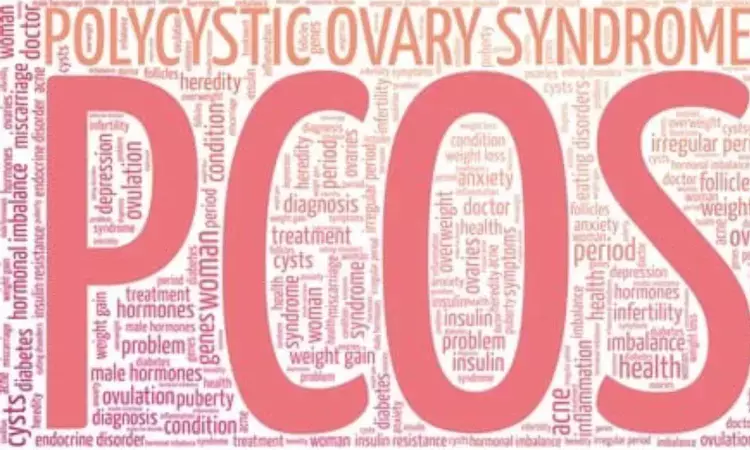- Home
- Medical news & Guidelines
- Anesthesiology
- Cardiology and CTVS
- Critical Care
- Dentistry
- Dermatology
- Diabetes and Endocrinology
- ENT
- Gastroenterology
- Medicine
- Nephrology
- Neurology
- Obstretics-Gynaecology
- Oncology
- Ophthalmology
- Orthopaedics
- Pediatrics-Neonatology
- Psychiatry
- Pulmonology
- Radiology
- Surgery
- Urology
- Laboratory Medicine
- Diet
- Nursing
- Paramedical
- Physiotherapy
- Health news
- Fact Check
- Bone Health Fact Check
- Brain Health Fact Check
- Cancer Related Fact Check
- Child Care Fact Check
- Dental and oral health fact check
- Diabetes and metabolic health fact check
- Diet and Nutrition Fact Check
- Eye and ENT Care Fact Check
- Fitness fact check
- Gut health fact check
- Heart health fact check
- Kidney health fact check
- Medical education fact check
- Men's health fact check
- Respiratory fact check
- Skin and hair care fact check
- Vaccine and Immunization fact check
- Women's health fact check
- AYUSH
- State News
- Andaman and Nicobar Islands
- Andhra Pradesh
- Arunachal Pradesh
- Assam
- Bihar
- Chandigarh
- Chattisgarh
- Dadra and Nagar Haveli
- Daman and Diu
- Delhi
- Goa
- Gujarat
- Haryana
- Himachal Pradesh
- Jammu & Kashmir
- Jharkhand
- Karnataka
- Kerala
- Ladakh
- Lakshadweep
- Madhya Pradesh
- Maharashtra
- Manipur
- Meghalaya
- Mizoram
- Nagaland
- Odisha
- Puducherry
- Punjab
- Rajasthan
- Sikkim
- Tamil Nadu
- Telangana
- Tripura
- Uttar Pradesh
- Uttrakhand
- West Bengal
- Medical Education
- Industry
Combination Therapy with Metformin and Inositol Improves Menstrual Regularity and Hirsutism in PCOS: Study

The combination of metformin and inositol has been documented to significantly improve menstrual cycle regularity and to reduce hirsutism in women with polycystic ovary syndrome (PCOS), according to researchers. PCOS is an endocrine disorder amongst women of reproductive age, and often presents with features of insulin resistance, irregular menstrual cycles, and hyperandrogenism. A recent study was conducted and published in the journal Endocrine by Francinny and colleagues.
PCOS is a complex syndrome characterized by dysfunction in the hormonal axis, associated with insulin resistance and disrupted metabolism. Though these abnormalities can lead to many symptoms such as irregular menstruation, acne, hirsutism, etc, it is not what defines or commonly determines the syndrome. The metabolic features of PCOS are treated with metformin, an insulin sensitizer. Of late, natural compounds, such as inositols, which have mediators for insulin signaling, are considered a potential therapeutic avenue.
A search of all relevant trials in the PubMed, Embase, and Cochrane databases was undertaken to search for randomized controlled trials that compare combination therapy of metformin plus inositol with metformin monotherapy in women diagnosed with PCOS. A total of six RCTs were included in the analysis, involving a total of 388 participants. The follow-up period in the reviewed studies ranged between 3 to 6 months. Calculations of RRs and MDs were done using a random-effect model with 95% CIs. A p-value of < 0.05 was required for statistical significance.
The meta-analysis yields several major findings that reflect the advantages of combination treatment compared with metformin monotherapy:
• In the combination therapy, the risk ratio was significantly higher than 1, RR: 1.56 (95% CI 1.01 to 2.41, p = 0.04), meaning that women treated with both drugs were 56% more likely to have regular cycles compared to women treated with metformin.
• Using the modified Ferriman-Gallwey score, there was a significant reduction in hirsutism on combination therapy. The MD is −0.97 (95% CI −1.53 to −0.40, p < 0.01), and it implies that with combination therapy, excess body hair levels are lower compared with monotherapy.
• Combination treatment brought about highly significant reduction of the LHR/FSHR ratio; SD, −0.13 (95% CI −0.24 to −0.03, p = 0.01), which suggests that there is a better hormonal balance in women with PCOS.
• Improvement of acne was not significantly different between the two groups, (p = 0.58).
• The BMI changes were not statistically significant (p = 0.13).
• It was found that there is no significant change in the fasting blood glucose level (p = 0.07).
• The HOMA-IR showed no statistically significant changes (p = 0.25).
In this meta-analysis results showed that combination therapy with inositol and metformin was regularity of menstrual cycles, reduced hirsutism, and decreased LH/FSH ratio compared to metformin monotherapy. These results suggest a possible beneficial effect on reproductive health, but lack of significant improvement in the metabolic markers indicates the need for further study to fully assess the effects of inositol in PCOS management. For now, the combination of metformin and inositol seems to have an advantage in countering some of the hormonal and reproductive challenges of PCOS.
Reference:
Kelly, F. A., de Oliveira Macena Lôbo, A., Cardoso, J. H. C. O., & de Moraes, F. C. A. (2024). Comparison of metformin with inositol versus metformin alone in women with polycystic ovary syndrome: a systematic review and meta-analysis of randomized controlled trials. Endocrine. https://doi.org/10.1007/s12020-024-04052-3
Dr Riya Dave has completed dentistry from Gujarat University in 2022. She is a dentist and accomplished medical and scientific writer known for her commitment to bridging the gap between clinical expertise and accessible healthcare information. She has been actively involved in writing blogs related to health and wellness.
Dr Kamal Kant Kohli-MBBS, DTCD- a chest specialist with more than 30 years of practice and a flair for writing clinical articles, Dr Kamal Kant Kohli joined Medical Dialogues as a Chief Editor of Medical News. Besides writing articles, as an editor, he proofreads and verifies all the medical content published on Medical Dialogues including those coming from journals, studies,medical conferences,guidelines etc. Email: drkohli@medicaldialogues.in. Contact no. 011-43720751


